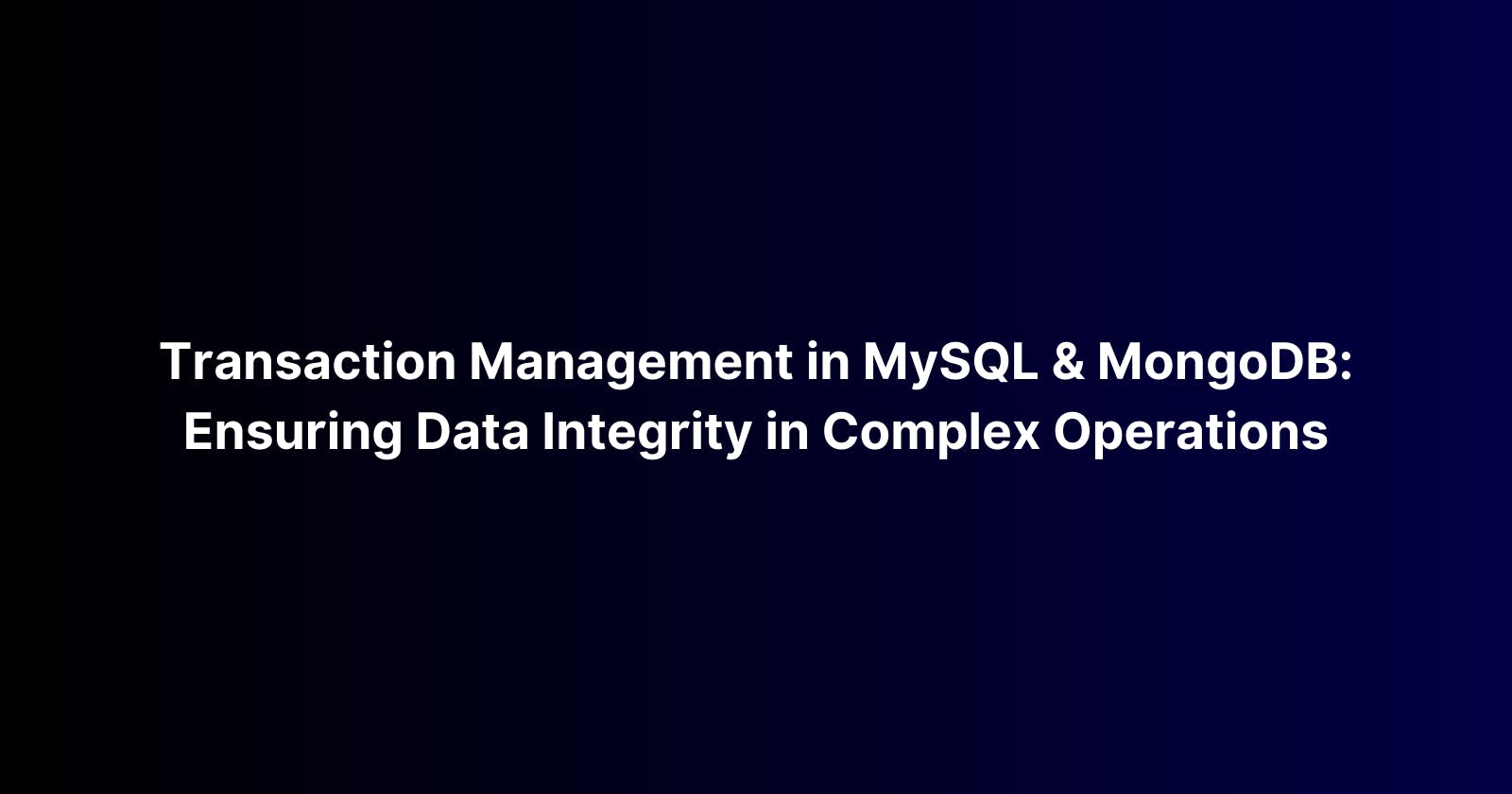Transaction Management in MySQL and MongoDB: Ensuring Data Integrity in Complex Operations
Navigating Complex Database Operations with Confidence: Insights into MySQL and MongoDB Transactions
In the realm of database management, ensuring data integrity is paramount, especially when dealing with complex operations. MySQL and MongoDB, two of the most popular database systems, offer robust transaction management capabilities to tackle this challenge. In this blog post, we'll delve into the intricacies of transaction management in both MySQL and MongoDB, exploring how they ensure data integrity in complex scenarios.
Understanding Transactions
Transactions are sequences of database operations that are executed as a single unit of work. They follow the ACID (Atomicity, Consistency, Isolation, Durability) properties to guarantee data integrity.
MySQL Transaction Management
MySQL supports transactions using the START TRANSACTION, COMMIT, and ROLLBACK statements. Let's consider an example:
START TRANSACTION;
UPDATE accounts SET balance = balance - 100 WHERE id = 1;
UPDATE accounts SET balance = balance + 100 WHERE id = 2;
COMMIT;
In this transaction, we deduct 100 units from the balance of account 1 and add 100 units to the balance of account 2. If any of these operations fail, we can roll back the entire transaction to maintain consistency.
MongoDB Transaction Management
MongoDB introduced multi-document transactions in version 4.0, providing ACID compliance for document-level operations. Transactions in MongoDB are supported for replica sets and sharded clusters.
const session = client.startSession();
try {
await session.startTransaction();
await collection1.updateOne({ _id: 1 }, { $inc: { balance: -100 } }, { session });
await collection2.updateOne({ _id: 2 }, { $inc: { balance: 100 } }, { session });
await session.commitTransaction();
} catch (error) {
await session.abortTransaction();
throw error;
} finally {
session.endSession();
}
Similar to MySQL, MongoDB transactions ensure that either all operations within the transaction are completed successfully or none of them are applied.
Ensuring Data Integrity in Complex Operations
Complex operations involving multiple database queries or updates pose a challenge to data integrity. However, with transaction management, we can maintain consistency across these operations.
For example, consider a banking application where transferring funds involves deducting from one account and crediting another. Without transactions, if the deduction succeeds but the credit fails, the system would end up in an inconsistent state. With transactions, we can ensure that both operations succeed or fail together, preserving data integrity.
Conclusion
Transaction management plays a crucial role in ensuring data integrity, especially in scenarios involving complex operations. Both MySQL and MongoDB offer robust transaction capabilities, adhering to ACID properties to maintain consistency and reliability. Understanding and effectively utilizing these features are essential for building robust and scalable database-driven applications. By leveraging transaction management, developers can build applications that are not only efficient but also resilient to failures, ensuring data integrity even in the face of complex operations.
